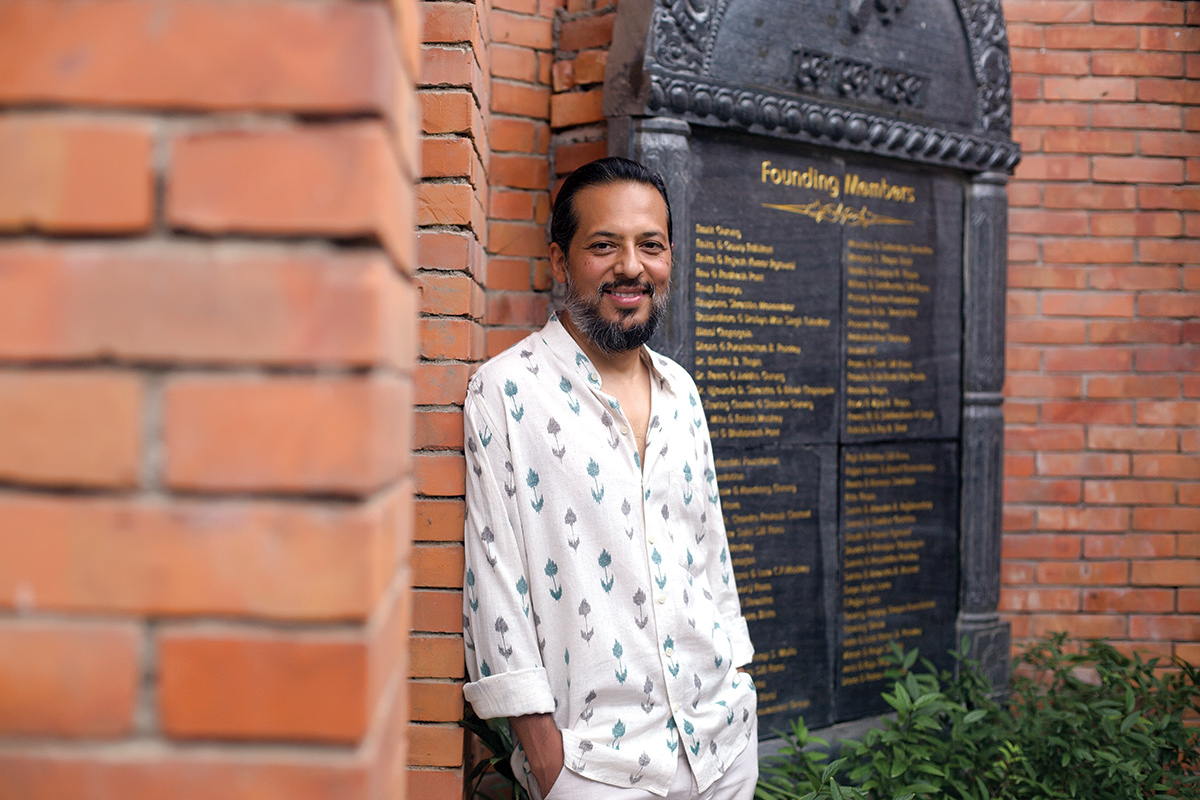
Ek Ek Paila’s Dr Suman Thapa compels you to think about healthcare access for all and why the national health agenda matters, and what you can do about it.
It is no secret that Nepal as a nation still has a long uphill journey when it comes to developing its health and medical resources and infrastructure. Despite appearing small in terms of geographic area, Nepal’s tough topography paired alongside its shaky economics and unpredictable politics has resulted in a highly disproportionate spread of medical infrastructure. While urban centers such as the capital are able to provide its denizens a fairly expansive range of medical services alongside an abundance of skilled medical professionals, their rural counterparts that are spread across the nation do not share this luxury. More often than not, rural municipalities and villages end up lacking even the most rudimentary of healthcare facilities. Stories of people having to walk for hours and sometimes even days just to get a blood test or have a sputum test is not something that is unheard of. And whatever little development in healthcare these regions do seem to witness has often been the result of a crippling dependency on foreign aid. And while foreign aid itself is not evil, the aid that trickles down here is not infinite and Nepal’s seemingly relentless addiction to it has on many occasions resulted in development that is not self-sustaining.
But the bigger question is not why Nepal suffers from a crippled healthcare system. Rather the question we should be asking ourselves is: how can we break away from this loop of big promises and sporadic development, and bridge the healthcare gaps that exist within the country? Well, the answer to this hefty query comes in the form of Ek Ek Paila, a volunteer-based healthcare non-profit that works to bring free and/or affordable healthcare facilities to the rural corners of Nepal while also making sure to fundraise domestically and sustainably.
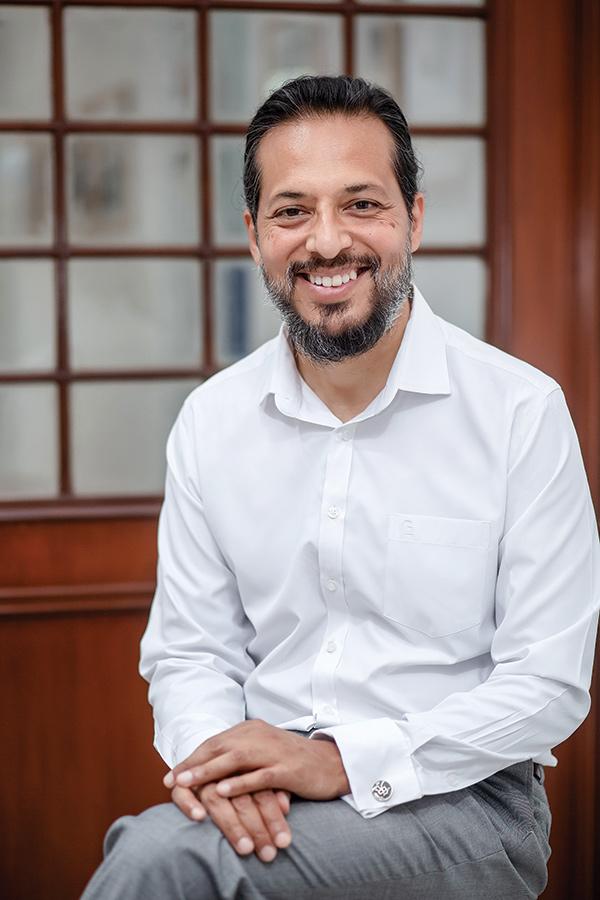
 That year Ek Ek Paila was able to complete 12 health camps across the country. It was only after seeing what they were capable of accomplishing, that this team of ragtag volunteers agreed upon officially starting Ek Ek Paila and registering it as a non-profit. Thapa shares, “During our first year, we were all volunteers and we did not register our organisation purposely, and we did not even have our own bank account. This is because our agenda was not to collect money and pile it up in a bank, rather we were very serious in terms of providing tangible healthcare services to people in these devastated areas.” This notion of not being money-driven was something that Ek Ek Paila took very seriously, so when the decision was made to actually register the group as a non-profit, it was agreed upon that they based themselves around a set of foundations that made sure they did not lose sight of their goals. These foundations according to Thapa are: their fundraising needs to be based on local philanthropy, they must always provide free treatment to people residing in the very remote areas of Nepal, and that Ek Ek Paila would have a very non-hierarchical system of leadership. Thapa goes on to explain, “We decided that Ek Ek Paila would never be person-centric, irrespective of the leadership.” In other words, Ek Ek Paila wanted all of its volunteers and workers to be able to associate themselves and take ownership of all the work they do.
Since then, Ek Ek Paila has successfully conducted around 20 elaborate health care camps that they also refer to as “Pailas” or “Steps” across various parts of the country.
That year Ek Ek Paila was able to complete 12 health camps across the country. It was only after seeing what they were capable of accomplishing, that this team of ragtag volunteers agreed upon officially starting Ek Ek Paila and registering it as a non-profit. Thapa shares, “During our first year, we were all volunteers and we did not register our organisation purposely, and we did not even have our own bank account. This is because our agenda was not to collect money and pile it up in a bank, rather we were very serious in terms of providing tangible healthcare services to people in these devastated areas.” This notion of not being money-driven was something that Ek Ek Paila took very seriously, so when the decision was made to actually register the group as a non-profit, it was agreed upon that they based themselves around a set of foundations that made sure they did not lose sight of their goals. These foundations according to Thapa are: their fundraising needs to be based on local philanthropy, they must always provide free treatment to people residing in the very remote areas of Nepal, and that Ek Ek Paila would have a very non-hierarchical system of leadership. Thapa goes on to explain, “We decided that Ek Ek Paila would never be person-centric, irrespective of the leadership.” In other words, Ek Ek Paila wanted all of its volunteers and workers to be able to associate themselves and take ownership of all the work they do.
Since then, Ek Ek Paila has successfully conducted around 20 elaborate health care camps that they also refer to as “Pailas” or “Steps” across various parts of the country.
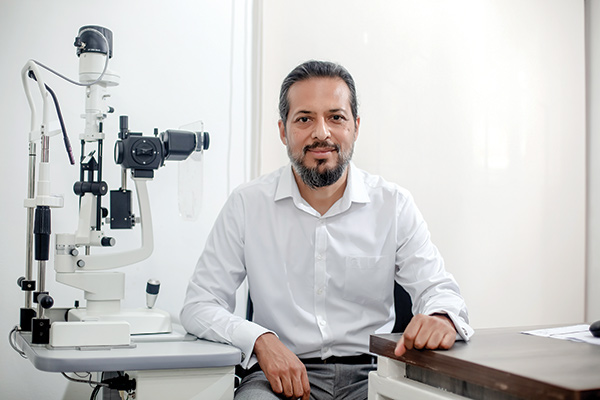
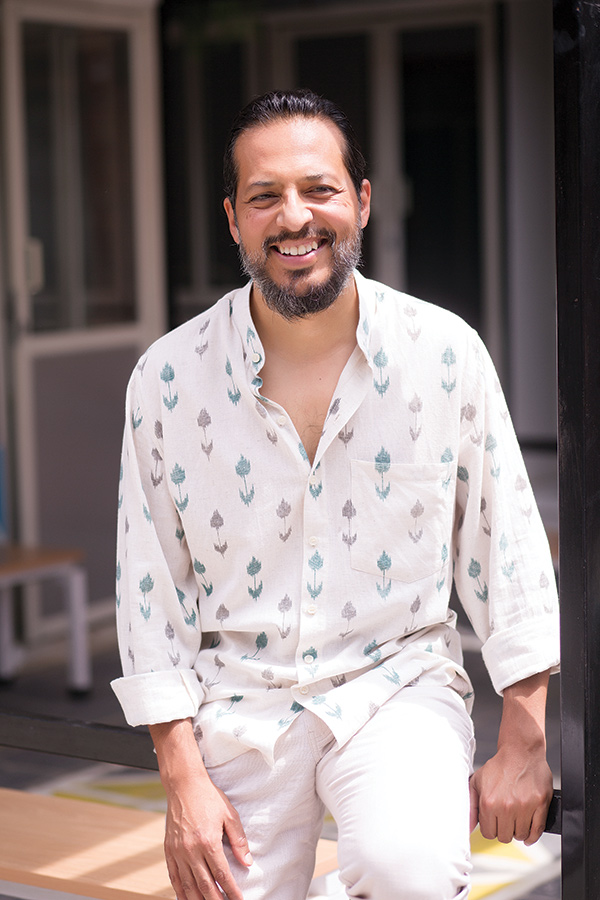
 Thapa also makes a point to note that there is a poor chain of command within the system. This paired alongside messy politics results is a nasty cocktail where nothing ever gets done. Thapa believes, “The people who lead organisations such as the Health Ministry should be people who have years of experience in health. Not just the secretary, but also the ministers should come from a health background and not a political party.” Thapa goes on to compare the two disasters that Nepal has had to face in recent years: the 2015 earthquake and the 2020 pandemic. Thapa expounds, “When the earthquake happened there was a lot of public participation. The majority of the work was done by the public, and this was able to camouflage the things that the government was not able to provide. However, the Corona pandemic has put the public into isolation and left the government naked. And now we can all see that the government has failed miserably. We are about to face the third wave, and yet our politicians are still fighting over who gets to be prime minister, while barely 3% of our population is vaccinated.” He goes on to state that in urban regions, patients die because of the severity of their illness, but in rural regions, patients die because they have not been able to access the treatments that they require.
Thapa also makes a point to note that there is a poor chain of command within the system. This paired alongside messy politics results is a nasty cocktail where nothing ever gets done. Thapa believes, “The people who lead organisations such as the Health Ministry should be people who have years of experience in health. Not just the secretary, but also the ministers should come from a health background and not a political party.” Thapa goes on to compare the two disasters that Nepal has had to face in recent years: the 2015 earthquake and the 2020 pandemic. Thapa expounds, “When the earthquake happened there was a lot of public participation. The majority of the work was done by the public, and this was able to camouflage the things that the government was not able to provide. However, the Corona pandemic has put the public into isolation and left the government naked. And now we can all see that the government has failed miserably. We are about to face the third wave, and yet our politicians are still fighting over who gets to be prime minister, while barely 3% of our population is vaccinated.” He goes on to state that in urban regions, patients die because of the severity of their illness, but in rural regions, patients die because they have not been able to access the treatments that they require.
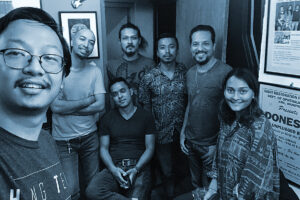 As for more recent events, Ek Ek Paila also set up a COVID response team in order to help rural communities affected by the pandemic. Thapa shares that the Ek Ek Paila team got in touch with these communities and figured out what they needed the most during these tough times. After raising funds to provide crucial medicines for these regions, Ek Ek Paila was able to connect with district-level hospitals, DHOs, district coordinators, mayors, and other officials and then provide medical packages to them. Till now, Ek Ek Paila has provided over 5000 medical packages to over 40 districts across the country. Thapa mentions that this was only possible because of the private sector donors who were able to come through to assist Ek Ek Paila in helping communities in need across the country. He believes that the transparency that Ek Ek Paila has with both their donors and their community partners is what allows them to achieve something that the government has been failing to do. And in the years to come, Thapa wants to use Ek Ek Paila as a connecting link that brings the domestic private sector closer to the local communities all over Nepal.
As for more recent events, Ek Ek Paila also set up a COVID response team in order to help rural communities affected by the pandemic. Thapa shares that the Ek Ek Paila team got in touch with these communities and figured out what they needed the most during these tough times. After raising funds to provide crucial medicines for these regions, Ek Ek Paila was able to connect with district-level hospitals, DHOs, district coordinators, mayors, and other officials and then provide medical packages to them. Till now, Ek Ek Paila has provided over 5000 medical packages to over 40 districts across the country. Thapa mentions that this was only possible because of the private sector donors who were able to come through to assist Ek Ek Paila in helping communities in need across the country. He believes that the transparency that Ek Ek Paila has with both their donors and their community partners is what allows them to achieve something that the government has been failing to do. And in the years to come, Thapa wants to use Ek Ek Paila as a connecting link that brings the domestic private sector closer to the local communities all over Nepal.

The birth of a cause
It is said that every cloud comes with its silver lining; for the silver lining that is Ek Ek Paila that cloud happened to be the devastating 2015 earthquake. While it was a terrible crisis that dealt a severe blow to Nepali society, the earthquake also generated a surge in volunteer work and community service like never before. One of the many people who tried to help those in need happens to be Dr. Suman Thapa, an ophthalmologist, and a glaucoma expert. Early on after the occurrences of the 2015 crisis, Thapa shares that he realised that as a medical professional, he wanted to help people out through his expertise as a doctor. This, in turn went on to become a social media post by Thapa stating that he was willing to provide his service pro bono for a Saturday each month while asking if any other like-minded individuals wanted to help out in a similar approach. Thapa was able to bring together a group of doctors and other volunteers, and with it began the bare-bones version of Ek Ek Paila. When it comes to the name “Ek Ek Paila”, Thapa mentions that their goal had always been to create a very Nepal-driven entity. He explains, “Back then, there were a lot of organisations who were able to generate a lot of money but were not able to spend it. At the same time, there were a lot of foreigners who came as one-timers and did a lot of publicity back home. But nobody was able to provide sustained relief.” It is because of this situation that the founding group decided that they wanted to create something that was for the Nepali people by the Nepali people. So, when another founding member casually suggested that they call themselves “Ek Ek Paila”, literally meaning “one step at a time”, the rest of the team unanimously agreed. That year Ek Ek Paila was able to complete 12 health camps across the country. It was only after seeing what they were capable of accomplishing, that this team of ragtag volunteers agreed upon officially starting Ek Ek Paila and registering it as a non-profit. Thapa shares, “During our first year, we were all volunteers and we did not register our organisation purposely, and we did not even have our own bank account. This is because our agenda was not to collect money and pile it up in a bank, rather we were very serious in terms of providing tangible healthcare services to people in these devastated areas.” This notion of not being money-driven was something that Ek Ek Paila took very seriously, so when the decision was made to actually register the group as a non-profit, it was agreed upon that they based themselves around a set of foundations that made sure they did not lose sight of their goals. These foundations according to Thapa are: their fundraising needs to be based on local philanthropy, they must always provide free treatment to people residing in the very remote areas of Nepal, and that Ek Ek Paila would have a very non-hierarchical system of leadership. Thapa goes on to explain, “We decided that Ek Ek Paila would never be person-centric, irrespective of the leadership.” In other words, Ek Ek Paila wanted all of its volunteers and workers to be able to associate themselves and take ownership of all the work they do.
Since then, Ek Ek Paila has successfully conducted around 20 elaborate health care camps that they also refer to as “Pailas” or “Steps” across various parts of the country.
That year Ek Ek Paila was able to complete 12 health camps across the country. It was only after seeing what they were capable of accomplishing, that this team of ragtag volunteers agreed upon officially starting Ek Ek Paila and registering it as a non-profit. Thapa shares, “During our first year, we were all volunteers and we did not register our organisation purposely, and we did not even have our own bank account. This is because our agenda was not to collect money and pile it up in a bank, rather we were very serious in terms of providing tangible healthcare services to people in these devastated areas.” This notion of not being money-driven was something that Ek Ek Paila took very seriously, so when the decision was made to actually register the group as a non-profit, it was agreed upon that they based themselves around a set of foundations that made sure they did not lose sight of their goals. These foundations according to Thapa are: their fundraising needs to be based on local philanthropy, they must always provide free treatment to people residing in the very remote areas of Nepal, and that Ek Ek Paila would have a very non-hierarchical system of leadership. Thapa goes on to explain, “We decided that Ek Ek Paila would never be person-centric, irrespective of the leadership.” In other words, Ek Ek Paila wanted all of its volunteers and workers to be able to associate themselves and take ownership of all the work they do.
Since then, Ek Ek Paila has successfully conducted around 20 elaborate health care camps that they also refer to as “Pailas” or “Steps” across various parts of the country.

Furthering sustainable development
“I have had the opportunity to work with non-profits for the larger part of my life,” shares Thapa, who till date has accomplished over 60,000 eye surgeries – primarily cataract and glaucoma - across a number of different regions in the world, and is currently also working part-time at TilGanga Hospital. He explains, “It is because of this experience that I could weigh the pros and cons of receiving huge funds from foreign countries. And owing to this experience, I feel that for any developmental program to be sustainable in the true sense, it has to be locally driven.” And while Thapa does admit that the organisation has taken foreign grants on some occasions, he also reaffirms that it is not something that they are dependent on, and is not their sole umbilical cord. But how does Ek Ek Paila manage to fund itself? And what does, relying on local fundraising even mean? Well to understand that we first need to look at the challenges that Thapa and the Ek Ek Paila team face. “Initially the biggest challenge we had was to finance our trips and camps. When taking a team of 20-25 people, buying the medicines for over 2000 patients, and taking the necessary equipment to these regions meant that there would be a significant cost,” shares Thapa. With tens of lakhs necessary to organise even a single health camp, the financial hurdle towards these goals is a significant one. However, an optimistic Thapa states that the beauty of humanity is that people are willing to come together for a good cause. He shares, “We got financial help from many of our well-wishers. We got a lot of help from companies and private organisations. And we were also able to find financial assistance from many of the local governments in the regions that we visited.” This help that Ek Ek Paila received could be as little as a one-time donation from a patient in Kathmandu to something as big as the organisation signing MoUs with municipal governments which in turn allocated a bit of the local budget for their work. Even their headquarters in Thapathali was lent to them for a period of 10 years by Thapa’s mother, who also wanted to play a part in supporting the cause. Thapa has even managed to go beyond his role as a doctor, and bring in his passion for music to help raise funds for Ek Ek Paila through his band, the Blue Fret. And in doing so, Ek Ek Paila has successfully managed to bring together the domestic private sector, local governments, and individuals seeking to support a good cause. As for the project end of things, Ek Ek Paila had always realised that a challenge they would inevitably have to face was with the availability of its volunteers. As an organisation that relied heavily on volunteer doctors and medical workers who had their own set of professional commitments, Ek Ek Paila understood that this would most certainly affect the frequency in which they could deliver. Taking this into account, the organisation chose to provide more intensive and specialised health camps, as opposed to smaller and more frequent health centers. In Thapa’s own words, “We were a group that was very busy, as we were all affiliated to different hospitals as well. And so, we decided that instead of being too ambitious, let’s start small and commit ourselves to deliver just 2-3 health clinics at a time, but let’s make these few efforts very comprehensive. So, when we actually travel to these rural regions, we do things like eye surgeries, ENT surgeries, radiology, and whatnot.” In fact, Ek Ek Paila’s health camps appear to be less of a camp and appear to be more of a small but well-rounded moving hospital.
Understanding Nepal’s healthcare woes
While the work that Ek Ek Paila has been doing is truly inspiring and a confident step in the right direction, it is not possible for us to treat it as the sole solution to the disrupted healthcare system that exists in Nepal at the moment. When asked about how he feels about the healthcare situation in Nepal, Thapa first chooses to look at the positive side of things. He says, “One of the good things that has happened to the Nepali healthcare system in recent years, is that we are now transitioning from a unitary health system to a more federal health system. This is really good because we can now distinguish between the federal, the provincial, and the local. People in local communities now have a say in how a part of the health budget is used, and this change from a top-to-bottom approach to a bottom-to-top approach is certainly good.” Thapa reasons that people in local areas are aware of the health issues and actualities that they face and can hence more effectively divide their resources. One of the reasons organisations such as Ek Ek Paila are able to work better in rural communities is because these communities have more say in where they want their budgets to be spent. Other positives include policies such as universal health coverage and the national health insurance scheme that allows people to more easily pay their hospital bills. However, while this change from unitary to federal healthcare policies certainly sells on paper, in reality, Thapa admits that this transition, like most other development projects in Nepal, is a work in progress. Thapa urges policymakers and implementors that this delay has to be minimised. He says, “The reason for this delay is more political than anything else.” Moreover, even policies such as the national health insurance that have already been implemented only cover a fraction of the medical costs that patients may have to face. In reality, even with these policies in place, patients end up having to pay for a lot more hidden costs out of their pockets. Thapa further reasons that these issues can most likely be solved through the taxes that we pay as citizens. But these are more passive issues than what Thapa has to add. “We make our houses, and if it collapses during an earthquake then we are to blame for not making it strong enough. Similarly, if during a crisis our healthcare infrastructure collapses then the government is to blame right?” questions Thapa. He sees two key faults in the national healthcare system. The first being that Nepal needs to review and revise its healthcare architecture to be better ready for crises such as earthquakes, flash floods, and even pandemics. And the second is that Nepal severely lacks enough healthcare professionals necessary for it to take care of itself. While it might not appear so for urban centers, Thapa shares that rural regions often do not have the medical manpower that they need. “Probably the current health system including the numbers of doctors and paramedics is suited for a 10 million population while we are a 30 million population.” Thapa also makes a point to note that there is a poor chain of command within the system. This paired alongside messy politics results is a nasty cocktail where nothing ever gets done. Thapa believes, “The people who lead organisations such as the Health Ministry should be people who have years of experience in health. Not just the secretary, but also the ministers should come from a health background and not a political party.” Thapa goes on to compare the two disasters that Nepal has had to face in recent years: the 2015 earthquake and the 2020 pandemic. Thapa expounds, “When the earthquake happened there was a lot of public participation. The majority of the work was done by the public, and this was able to camouflage the things that the government was not able to provide. However, the Corona pandemic has put the public into isolation and left the government naked. And now we can all see that the government has failed miserably. We are about to face the third wave, and yet our politicians are still fighting over who gets to be prime minister, while barely 3% of our population is vaccinated.” He goes on to state that in urban regions, patients die because of the severity of their illness, but in rural regions, patients die because they have not been able to access the treatments that they require.
Thapa also makes a point to note that there is a poor chain of command within the system. This paired alongside messy politics results is a nasty cocktail where nothing ever gets done. Thapa believes, “The people who lead organisations such as the Health Ministry should be people who have years of experience in health. Not just the secretary, but also the ministers should come from a health background and not a political party.” Thapa goes on to compare the two disasters that Nepal has had to face in recent years: the 2015 earthquake and the 2020 pandemic. Thapa expounds, “When the earthquake happened there was a lot of public participation. The majority of the work was done by the public, and this was able to camouflage the things that the government was not able to provide. However, the Corona pandemic has put the public into isolation and left the government naked. And now we can all see that the government has failed miserably. We are about to face the third wave, and yet our politicians are still fighting over who gets to be prime minister, while barely 3% of our population is vaccinated.” He goes on to state that in urban regions, patients die because of the severity of their illness, but in rural regions, patients die because they have not been able to access the treatments that they require.
Working towards a healthier Nepal
The road towards a healthier Nepal is by no means an easy one. Not only do we as a nation need to invest in developing our healthcare infrastructure, but we also need to look into making systemic changes to the role that politics play in healthcare. At the same time, Thapa also believes that private sector organisations should also play a more active role in this regard, whether it is through CSR events or through individual participation. As for more recent events, Ek Ek Paila also set up a COVID response team in order to help rural communities affected by the pandemic. Thapa shares that the Ek Ek Paila team got in touch with these communities and figured out what they needed the most during these tough times. After raising funds to provide crucial medicines for these regions, Ek Ek Paila was able to connect with district-level hospitals, DHOs, district coordinators, mayors, and other officials and then provide medical packages to them. Till now, Ek Ek Paila has provided over 5000 medical packages to over 40 districts across the country. Thapa mentions that this was only possible because of the private sector donors who were able to come through to assist Ek Ek Paila in helping communities in need across the country. He believes that the transparency that Ek Ek Paila has with both their donors and their community partners is what allows them to achieve something that the government has been failing to do. And in the years to come, Thapa wants to use Ek Ek Paila as a connecting link that brings the domestic private sector closer to the local communities all over Nepal.
As for more recent events, Ek Ek Paila also set up a COVID response team in order to help rural communities affected by the pandemic. Thapa shares that the Ek Ek Paila team got in touch with these communities and figured out what they needed the most during these tough times. After raising funds to provide crucial medicines for these regions, Ek Ek Paila was able to connect with district-level hospitals, DHOs, district coordinators, mayors, and other officials and then provide medical packages to them. Till now, Ek Ek Paila has provided over 5000 medical packages to over 40 districts across the country. Thapa mentions that this was only possible because of the private sector donors who were able to come through to assist Ek Ek Paila in helping communities in need across the country. He believes that the transparency that Ek Ek Paila has with both their donors and their community partners is what allows them to achieve something that the government has been failing to do. And in the years to come, Thapa wants to use Ek Ek Paila as a connecting link that brings the domestic private sector closer to the local communities all over Nepal.
Published Date: July 26, 2021, 12:00 am
Post Comments
E-Magazine
RELATED In the Lead


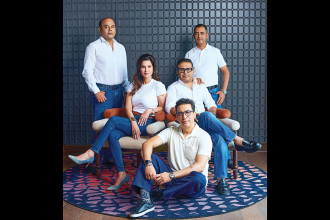
-1749018895.jpg)